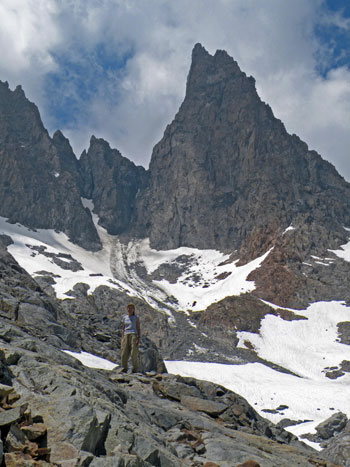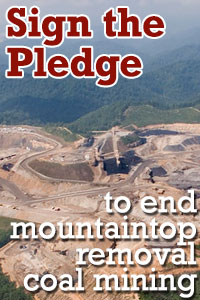News
Guest Blogger: Voices from the field
Wednesday, November 10th, 2010
Diana Richardson is a professor at San Diego State University. This blog part of the “Voices from the Field” series which highlights testimonies of supporters across the country fighting to end the practice of mountaintop removal coal mining. Do you have a story to share? Email kate@appvoices.org to be featured in this series.
 I believe that Mountaintop Removal is the greatest intentional environmental and human rights abuse occurring in our country today. Yet, aside from the victims who are living the nightmare, and the people allied in their fight for these people and mountains, it is largely unknown to most Americans.
I believe that Mountaintop Removal is the greatest intentional environmental and human rights abuse occurring in our country today. Yet, aside from the victims who are living the nightmare, and the people allied in their fight for these people and mountains, it is largely unknown to most Americans.
I became generally aware of mountaintop removal only 4 years ago, though I knew of “strip mining” and its impacts. This fills me with shame, as I pride myself on being aware of anything damaging the natural environment and the people of our country. I have travelled to the north coast of Alaska to learn about and write of the native Inupiat conflict with oil drilling. I have written of the political and economic practices that led to the tragic flooding in New Orleans from Katrina, I have worked in environmental policy since the late 1970s, and I teach of environmental issues at the university level. So, how did this disaster in Appalachia elude me? Ok, I’m not perfect. But, I try. It was a Vanity Fair article in 2006 (no, I don’t get the magazine – but, good lesson in preconceived notions!) that woke me up. I began to research the issue and to teach it to my classes. However, I didn’t know enough. My mother is from Wheeling, WV, and her father from Fairmont. I have Appalachia in my roots, and this issue was not only challenging me on an academic level, but was also haunting me from a much deeper level. I had to go.
A stab-in-the-dark response to a mass email from iLoveMountains.org led to a quick response from Kate Rooth (Appalachian Voices), who so generously helped organize my opportunities during a trip to see mountaintop removal first hand. I couldn’t believe my luck that the time I planned to go coincided with the Alliance for Appalachia’s Community Leader Training Weekend in Charleston, WV. Details came together seamlessly and off I went.
The best way to describe my experience was “an amazing overload of beauty, heartache, hope and tragedy”. The people I met are unforgettable. The scenes I saw are tattooed in my mind. The stories I heard replay over and over in my memory.
The mountains aren’t like the western ranges that surround me. They are, instead, close, dense, heavily forested, soft, embracing. They are beautiful. Full of life. The destruction from mountaintop removal is appalling, overwhelming. The peoples’ stories are heart wrenching, unbelievable truths that go with corrupt third-world governments – not ours.
The training weekend was excellent. The greatest hope that I have for ending mountaintop removal comes from the large number of intelligent and resourceful people that I met there – the people from local communities’ who are involved in grass roots activities, from direct action to infrastructure building and improvements, and the people from all the non-profit organizations who bring experience, education and great talent in policy development, and in education and outreach. Information disseminated during the weekend was educational, useful, and inspiring. It was well organized and effective.
Thanks to Dustin White (Cook Mountain) and Kate Rooth, I was able to go to Kayford Mountain and view mountaintop removal. That evening, I had dinner with Larry and Carol Gibson of Kayford Mountain, and then visited with them at their home.
Who cannot cry, fight back, work hard to change – be affected at the deepest levels when presented this information and these experiences? Not me.
In my work at San Diego State University, I have accelerated and extended this issue in my courses. My students will be researching and giving term presentations on the issue, I am speaking to the Green Lunch Bag series in November on campus on the topic, and all of my classes will have a significant section on mountaintop removal. We need more people in California and the west involved in this issue. We need policy makers from non-fossil fuel states to support the Clean Water Protection Act in the House, and the Appalachia Restoration Act in the Senate, and to demand enforcement of existing laws. This is not an Appalachian issue only, and it is not an eastern U. S. issue only. These are our mountains, these are our people, and this is our issue. This is our collective goal as Americans – work hard for change that is coming to improve the lives of the people in this spectacular mountain region.










December 2nd, 2010 at 3:10 pm
Nice work, Diane!
December 6th, 2010 at 7:43 pm
Thanks Diane. Greatly appreciated!